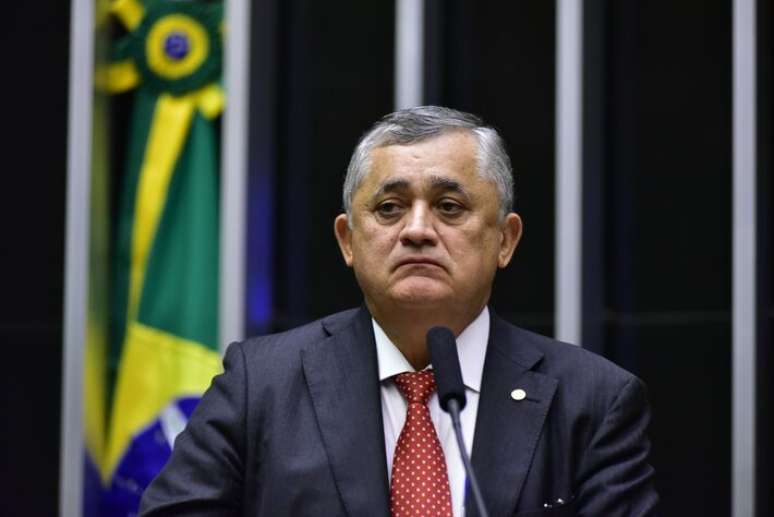MP José Guimarães (PT-CE) presented the projects after negotiations with the Ministry of Finance
BRASÍLIA – The head of government Room, José Guimarães (PT-CE), presented on the night of Wednesday 27th, the proposals for exemption from municipal payrolls and for the gradual end of the Emergency Program for the Recovery of the Events Sector (Perse). The two bills were tabled by the deputy after negotiations with the Ministry of Finance.
In an interim measure (MP) issued at the end of the year, the government had decided to end Perse, a program created during the Covid-19 pandemic, and the special pension scheme for municipalities. Faced with resistance from deputies and entrepreneurs, the Minister of Finance, Fernando Haddad, decided to negotiate a bill with a middle ground, as happened in the case of the payroll tax exemption for 17 sectors of the economy.
The municipal exemption project limits this benefit to cities with a maximum of 50 thousand inhabitants and a net income (RCL) per capita of up to R$ 3,895. The social security contribution rate would be 14% this year, 16% in 2025 and 18% in 2026. This rate was 20% until it was reduced to 8% by Congress last year. There is also the possibility of paying municipal debts in installments with the IRS up to five years, with up to 70% reduction in interest and penalties.
The Perse text provides for a revenue cap of R$78 million per year so that companies can access the benefits. The proposal, in practice, aims to exclude companies that earn real profits from the program.
The project predicts that Perse will cease to exist in 2027, with a progressive reduction in benefits. The discount on PIS, Cofins and Social Contribution on Net Profit (CSLL) rates, currently 100% for beneficiaries of the program, would drop to 45% this year, 40% in 2025 and 25% in 2026. In this case of corporate income tax (IRPJ), the benefit would continue in full in 2024, but increase to 40% next year and 25% in 2026.
In addition to providing for the gradual end of Perse, the proposal also reduces from the current 30 to 12 the number of sectors of the National Classification of Economic Activities (CNAE) that will henceforth be part of Perse. The initial idea was to limit it to 7 sectors.
Guimarães also proposes self-regularization for companies that have inappropriately used Perse benefits. These companies will not have to pay a fine if they confess to an irregularity, but they will have to pay the taxes due, in full and in installments, with interest. The deadline to join this program is 90 days from the publication of the law.
As demonstrated by Station/Broadcast, government officials worked to ensure that the Perse and municipal exemption bills were signed off by Congress and not the executive branch. This was the solution to allow the government to buy time until it found a way to compensate for the loss of revenue with the measures. In the proposals presented by Guimarães, and also signed by the leader of the PT in the Chamber, Odair Cunha (MG), there is no estimate of the fiscal impact.
On the 15th, the Treasury responded to a request for information on the impact of Perse, but the author of the law that created tax breaks for the sector, MP Felipe Carreras (PSB-PE), said that the data is incomplete .
The parliamentarian’s request, sent to the government on February 5, asked for access to tax exemption values with Perse in 2023. This figure is a point of contention between the economic team and Congress. In the response sent to Carreras, the Treasury states that the cost of the program was R$10.8 billion in 2022 and R$13.1 billion in 2023. Haddad, however, had previously mentioned the value of R$17 billion of R$ last year.
Carreras underlined that the material released by the Ministry describes in detail only 32 of the 44 CNAEs that fall under Perse. The other 12 CNAEs were grouped in the “other” category. “This represents a 1 in 5 cost omission,” she criticized. The parliamentarian points out that many CNAES have been removed from the list of beneficiaries of the program.
The deputy specified, for example, that the CNAE “cleaning of buildings and homes” is present in both the 2022 cost and the 2023 budget, but, according to him, it has never been a beneficiary of Perse. Furthermore, according to the parliamentarian, the private surveillance and security activity of the CNAE is also included in the calculation of the two-year period, but it was eliminated from the program in 2023.
“The numbers released by the Ministry help our narrative. If the incentive is granted only to those who are the essence of PERSE, we will be honest and achieve the purpose of the Program created by the National Congress,” Carreras said in a note.
“We suspected that they were counting sectors that would not be entitled to the benefit and the request for information clarified this. I believe that the Government understands that the program must move forward. It can be rethought jointly, with the collaboration of Parliament and also the sectors that make up the tourism and events sector. We continue to seek dialogue”, added the MP.
Next week MPs will deal with the membership of councilors in the final phase of the party window. Consequently, work in the Chamber is expected to resume only in the second week of April. The president of the Chamber, Arthur Lira (PP-AL), has yet to define the rapporteurs of Perse’s proposals and the exemption of the municipalities.
The list of activities benefiting from Perse, according to the government’s proposal, includes:
- Hotels;
- Organization of trade fairs, conferences, exhibitions and parties;
- Venues for parties and events;
- Theatrical production;
- Music production;
- Production of dance shows;
- Production of circus shows, puppet shows and the like;
- Sound and light activities;
- Complementary shows, shows and activities not previously specified;
- Restaurants and similar;
- Bars and other places specialized in serving drinks, without entertainment;
- Bars and other places specialized in serving drinks, with entertainment.
Source: Terra
Ashley is a professional author and journalist, working at 247 News Update. She writes on various topics from economy news to general interest pieces, providing readers with relevant and informative content. She brings a unique perspective and in-depth analysis to her work.



